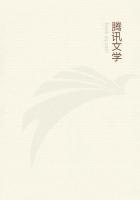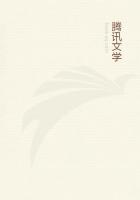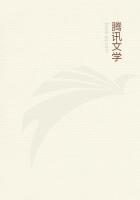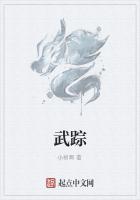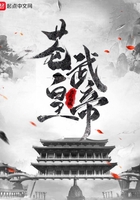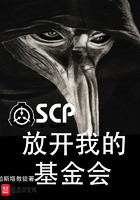"And you, Ahuhu?" he demanded of one whose name meant "poison-wood."
"And the price of a pair of dungarees," Ahuhu concluded his list of needs. "I have ridden much and hard after your cattle, Kanaka Oolea, and where my dungarees have pressed against the seat of the saddle there is no seat to my dungarees. It is not well that it be said that a Kanaka Oolea cowboy, who is also a cousin of Kanaka Oolea's wife's half-sister, should be shamed to be seen out of the saddle save that he walks backward from all that behold him."
"The price of a dozen pairs of dungarees be thine, Ahuhu," Hardman Pool beamed, tossing to him the necessary sum. "I am proud that my family shares my pride. Afterward, Ahuhu, out of the dozen dungarees you will give me one, else shall I be compelled to walk backward, my own and only dungarees being in like manner well worn and shameful."
And in laughter of love at their haole chief's final sally, all the sweet-child-minded and physically gorgeous company of them departed to their waiting horses, save the old withered one, Kumuhana, who had been bidden to wait.
For a full five minutes they sat in silence. Then Hardman Pool ordered the little maid to fetch a tumbler of gin and milk, which, when she brought it, he nodded her to hand to Kumuhana. The glass did not leave his lips until it was empty, whereon he gave a great audible out-breath of "A-a-ah," and smacked his lips.
"Much awa have I drunk in my time," he said reflectively. "Yet is the awa but a common man's drink, while the haole liquor is a drink for chiefs. The awa has not the liquor's hot willingness, its spur in the ribs of feeling, its biting alive of oneself that is very pleasant since it is pleasant to be alive."
Hardman Pool smiled, nodded agreement, and old Kumuhana continued.
"There is a warmingness to it. It warms the belly and the soul.
It warms the heart. Even the soul and the heart grow cold when one is old."
"You ARE old," Pool conceded. "Almost as old as I."
Kumuhana shook his head and murmured. "Were I no older than you I would be as young as you."
"I am seventy-one," said Pool.
"I do not know ages that way," was the reply. "What happened when you were born?"
"Let me see," Pool calculated. "This is 1880. Subtract seventy-one, and it leaves nine. I was born in 1809, which is the year Keliimakai died, which is the year the Scotchman, Archibald Campbell, lived in Honolulu."
"Then am I truly older than you, Kanaka Oolea. I remember the Scotchman well, for I was playing among the grass houses of Honolulu at the time, and already riding a surf-board in the wahine" (woman) "surf at Waikiki. I can take you now to the spot where was the Scotchman's grass house. The Seaman's Mission stands now on the very ground. Yet do I know when I was born. Often my grandmother and my mother told me of it. I was born when Madame Pele" (the Fire Goddess or Volcano Goddess) "became angry with the people of Paiea because they sacrificed no fish to her from their fish-pool, and she sent down a flow of lava from Huulalai and filled up their pond. For ever was the fish-pond of Paiea filled up. That was when I was born."
"That was in 1801, when James Boyd was building ships for Kamehameha at Hilo," Pool cast back through the calendar; "which makes you seventy-nine, or eight years older than I. You are very old."
"Yes, Kanaka Oolea," muttered Kumuhana, pathetically attempting to swell his shrunken chest with pride.
"And you are very wise."
"Yes, Kanaka Oolea."
"And you know many of the secret things that are known only to old men."
"Yes, Kanaka Oolea."
"And then you know--" Hardman Pool broke off, the more effectively to impress and hypnotize the other ancient with the set stare of his pale-washed blue eyes. "They say the bones of Kahekili were taken from their hiding-place and lie to-day in the Royal Mausoleum. I have heard it whispered that you alone of all living men truly know."
"I know," was the proud answer. "I alone know."
"Well, do they lie there? Yes or no?"
"Kahekili was an alii" (high chief). "It is from this straight line that your wife Kalama came. She is an alii." The old retainer paused and pursed his lean lips in meditation. "I belong to her, as all my people before me belonged to her people before her. She only can command the great secrets of me. She is wise, too wise ever to command me to speak this secret. To you, O Kanaka Oolea, I do not answer yes, I do not answer no. This is a secret of the aliis that even the aliis do not know."
"Very good, Kumuhana," Hardman Pool commanded. "Yet do you forget that I am an alii, and that what my good Kalama does not dare ask, I command to ask. I can send for her, now, and tell her to command your answer. But such would be a foolishness unless you prove yourself doubly foolish. Tell me the secret, and she will never know. A woman's lips must pour out whatever flows in through her ears, being so made. I am a man, and man is differently made. As you well know, my lips suck tight on secrets as a squid sucks to the salty rock. If you will not tell me alone, then will you tell Kalama and me together, and her lips will talk, her lips will talk, so that the latest malahini will shortly know what, otherwise, you and I alone will know."
Long time Kumuhana sat on in silence, debating the argument and finding no way to evade the fact-logic of it.
"Great is your haole wisdom," he conceded at last.
"Yes? or no?" Hardman Pool drove home the point of his steel.
Kumuhana looked about him first, then slowly let his eyes come to rest on the fly-flapping maid.
"Go," Pool commanded her. "And come not back without you hear a clapping of my hands."
Hardman Pool spoke no further, even after the flapper had disappeared into the house; yet his face adamantly looked: "Yes or no?"

